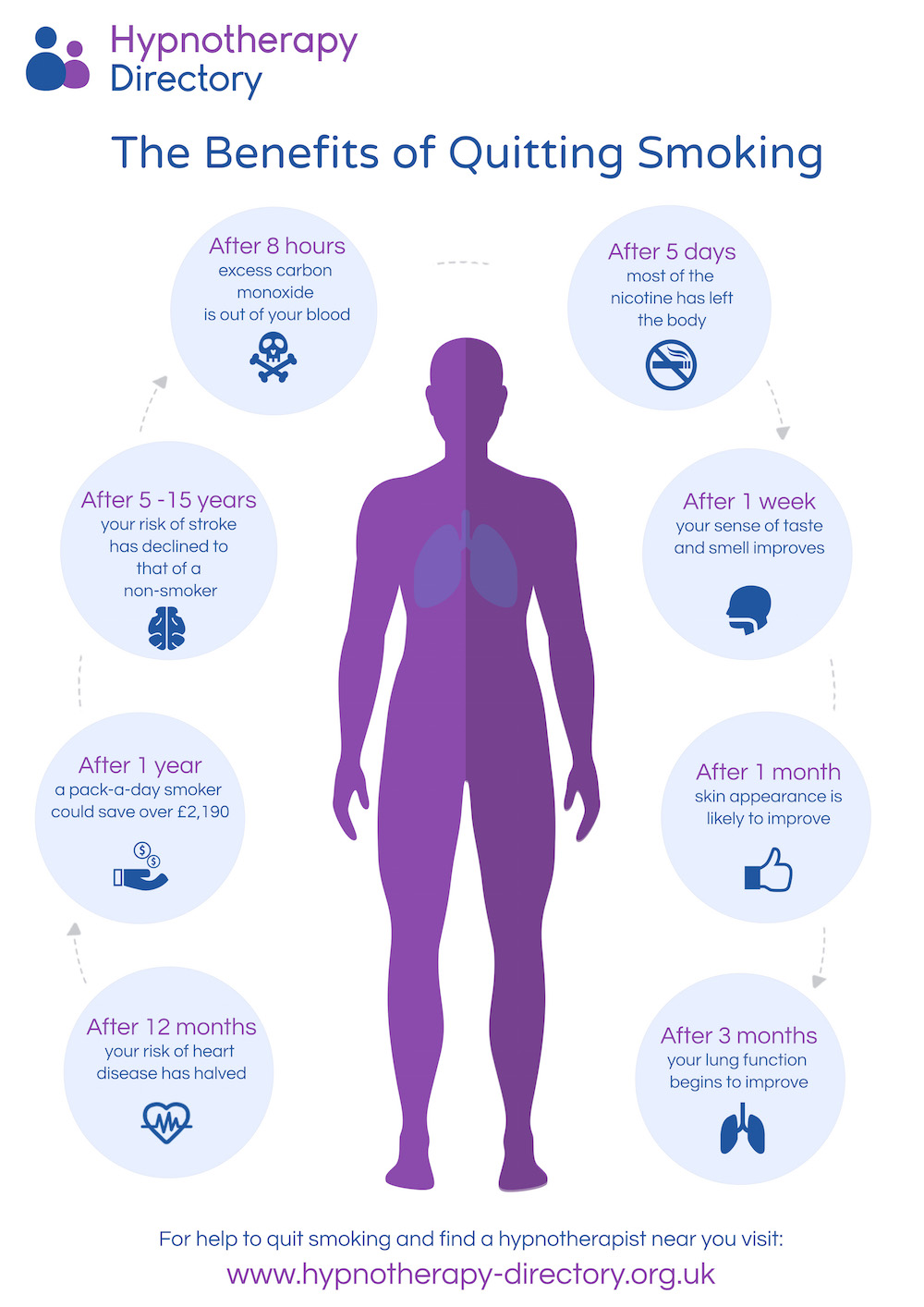

Benefits people already diagnosed with coronary heart disease or COPD.Reduces the risk for many adverse health effects, including poor reproductive health outcomes, cardiovascular diseases, chronic obstructive pulmonary disease (COPD), and 12 types of cancer.Quitting can add as much as a decade to life expectancy. Reduces the risk of premature death, improves health, and enhances quality of life.The evidence is clear – one of the most important actions people can take to improve their health is to quit smoking, no matter how old they are or how long they’ve been smoking. The 2020 Surgeon General’s Report highlights the latest evidence on the benefits of smoking cessation. But cessation treatment can help people quit. Tobacco dependence is a chronic, relapsing condition driven by addiction to nicotine. Consequently, it is difficult to make generalizations about efficacy for cessation based on clinical trials involving a particular e-cigarette, and there is presently inadequate evidence to conclude that e-cigarettes, in general, increase smoking cessation. E-cigarettes, a continually changing and heterogeneous group of products, are used in a variety of ways.Insurance coverage for smoking cessation treatment that is comprehensive, barrier-free, and widely promoted increases the use of these treatment services, leads to higher rates of successful quitting, and is cost-effective.Using combinations of nicotine replacement therapies can further increase the likelihood of quitting. Cessation medications approved by the FDA and behavioral counseling increase the likelihood of successfully quitting smoking, particularly when used in combination. Smoking cessation medications approved by the FDA and behavioral counseling are cost-effective cessation strategies.Similarly, the prevalence of key indicators of smoking cessation-quit attempts, receiving advice to quit from a health professional, and using cessation therapies-also varies across the population, with lower prevalence in some subgroups. population, with higher prevalence in some subgroups. Considerable disparities exist in the prevalence of smoking across the U.S.Food and Drug Administration (FDA) or behavioral counseling to support quit attempts. Although a majority of cigarette smokers make a quit attempt each year, less than one-third use cessation medications approved by the U.S. adults who have ever smoked cigarettes have quit. Quitting smoking is also beneficial to those who have been diagnosed with heart disease and COPD. Smoking cessation reduces risk for many adverse health effects, including poor reproductive health outcomes, cardiovascular diseases, chronic obstructive pulmonary disease (COPD), and cancer.


 0 kommentar(er)
0 kommentar(er)
